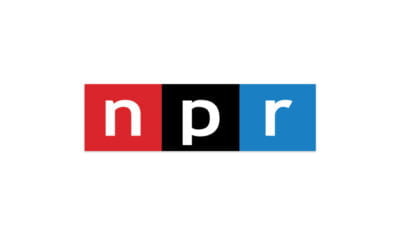News Radio
Taylor-Greene Interview with Todd Starnes Highlights Rift Among Republicans
In the interview Greene defended herself against Senate Minority Leader Mitch McConnell’s implication that she is a cancer in the Republican Party.
Published
3 years agoon
By
Jacob Conley
Controversial Republican Congresswoman Marjorie Taylor-Greene of Georgia has her fair share of supporters and detractors within her own party. But many prominent voices within conservative media have rushed to defend her amid a Democratic push to have her expelled from The House of Representatives for “having embraced conspiracy theories, including that school shootings and 9/11 were staged”, according to the BBC.
While Tucker Carlson defended Greene on his show Monday, Greene herself was a guest with Todd Starnes on Tuesday to tell her side of the story. That ultimately led Starnes, a Conservative, to call the top Republican in Congress, Mitch McConnell ,“sleazy” and “a dirt bag”, highlighting the growing rift in the Republican Party.
“Marjorie Taylor-Greene is the most hated person in Washington and I honestly don’t know why,” Starnes said. “I suspect the reason they hate her so much is that she supports Donald Trump.”
In the interview Greene defended herself against Senate Minority Leader Mitch McConnell’s implication that she is a cancer in the Republican Party.
“The cancer within the party is not me, but it is those Republicans who lose gracefully without standing up and fighting. Republicans have caved for years now…It’s because of weak Republicans that America is being overrun by Socialists and the Democratic Party.”
Starnes responds by calling McConnell “sleazy” and a “dirt bag”, while asking Greene to dispel the lies spread about her in the media.
“What he (McConnell) is doing is just trying to earn street cred with the Left and it’s despicable,” he said. “Big media is spreading lies about you. What are some of them?” While not addressing the media stories directly because of pending lawsuits, Greene did offer a general statement.
“The media is using other people’s comments and attributing them to me and it goes back to some social media posts from 2018,” Greene said. “I have no idea what they are talking about and I have nothing to apologize for. I don’t have to answer to MSNBC, CNN or any other member of the media. All I have to do is represent the people in my district to the best of my ability. That’s what I was elected to do.”
Starnes closes the interview by asking Greene if she has any regrets for any of the things she has said or posted on social media, many of which Starnes admits he does not agree with.
“I don’t agree with everything you say or post,” he said. “But who cares? It’s your Constitutional right to say them and now Democrats and Republicans are coming after you. Do you regret anything you have said or posted?”
“I regret a lot of things in my life,” Greene said. “I’ve done a lot of good things and I’ve done a lot of bad things. That’s why I’m so grateful I am a Christian and have the grace of God.”

Jacob Conley writes about news/talk radio BNM. He can be found on Twitter @GWUJake or reach him by email at [email protected].
You may like
News Radio
News Media Reacts to Uri Berliner Resigning From NPR
Reaction to the news from the news media was generally drawn down party lines, with conservatives championing the move, while liberals chastised the longtime editor.
Published
7 hours agoon
April 17, 2024By
BNM Staff
NPR Business Editor Uri Berliner has announced his resignation from the outlet he called home for 25 years Wednesday.
Last week, Berliner penned an essay criticizing the network for what he called a liberal bias, stating NPR had “lost America’s trust” in the process. After his comments went viral, the organization “strongly disagreed” with his encapsulation.
On Friday, Berliner was suspended by NPR for breaking previously established internal protocols. While he stated he would not fight the discipline, he called into question whether or not newly minted CEO Katherine Maher was fit to lead the network due to her left-wing bias after former social media posts were uncovered.
In a statement published to X, Uri Berliner stated “I am resigning from NPR, a great American institution where I have worked for 25 years. I don’t support calls to defund NPR,” Berliner wrote. “I respect the integrity of my colleagues and wish for NPR to thrive and do important journalism. But I cannot work in a newsroom where I am disparaged by a new CEO whose divisive views confirm the very problems at NPR I cite in my Free Press essay.”
Reaction to the news from the news media was generally drawn down party lines, with conservatives championing the move, while liberals chastised the longtime editor. Meanwhile, colleagues took aim at Berliner for placing the outlet in the crosshairs.
🚨 Berliner resigns from NPR, citing public disparagement from leftist activist CEO https://t.co/zVv8824MQ0
— Guy Benson (@guypbenson) April 17, 2024
NPR senior business editor Uri Berliner resigned this morning.
— Mary Louise Kelly (@NPRKelly) April 17, 2024
Among the many things that could be said, I will say this: thank you to my colleagues here in the newsroom today for your grace, collegiality and hard work during a challenging period.
And for showing up today,… https://t.co/xMsPqqCJYk
BREAKING: Uri Berliner has resigned from NPR after penning an essay criticizing the outlet for his far-left bias and subsequently suspended without pay.
— Charlie Kirk (@charliekirk11) April 17, 2024
“I cannot work in a newsroom where I am disparaged by a new CEO whose divisive views confirm the very problems at NPR I cite… https://t.co/TjnkJ1C2kp
NPR’s Uri Berliner has resigned for the reasons below. He may not support calls to defund it, but a lot of folks reasonably ask why they should be forced to fund propaganda which they find abhorrent. https://t.co/HmHnBbO5Xc
— David Asman (@DavidAsmanfox) April 17, 2024
Uri Berliner announces he’s resigned from NPR. Spoke with NPR media correspondent @davidfolkenflik on The Hill on @newsnation last night ⬇️ https://t.co/hM6m9BFEQ4 pic.twitter.com/9xrTIyL2yd
— Blake Burman (@BlakeBurman) April 17, 2024
Don’t worry.
— Sebastian Gorka DrG (@SebGorka) April 17, 2024
You’ll be replaced by another Democrat who hates President Trump.
And is paid for by us. https://t.co/uv0RMYQG1w
I don't blame him. The positions of @kmaher range from the absurd to the small-minded. Who could work for her while trying to do actual journalism? https://t.co/4FD5HSNwae
— Andrew Klavan (@andrewklavan) April 17, 2024
NPR suspended him for 5 days without pay and didn't give him the martyrdom he so desperately wanted. So now he's quitting.
— Russ McNamara (@McNamaraWDET) April 17, 2024
His rant contained some valid criticism and also a whole lot of bullshit that did not survive a fact check. https://t.co/nCsoltgqrm
The price of speaking truth. https://t.co/57xj70zqbS
— Mark Davis (@MarkDavis) April 17, 2024
Uri Berliner's story is extremely significant because he hasn't taken the "red pill." He's still liberal, he just also believes in objective journalism. His story echoes that of @bariweiss and so many others who realize that the Left's echo chamber is stultifying. https://t.co/moR1SG9J8g
— Tyler O'Neil (@Tyler2ONeil) April 17, 2024
Ah. So you were planning to quit and decided to try to take the place down with you – and then look like a martyr. I tried that one once when I was a kid. Doesn't work.
— Keith Olbermann (@KeithOlbermann) April 17, 2024
Sounds like something that should receive bipartisan support.
— Tony Kinnett (@TheTonus) April 17, 2024
and not uh the reaction from colleagues whom he publicly disrespected by impugning their integrity. or from young staff who now view him as an antagonistic presence who cannot be trusted to edit them without accusing them of bias. or union colleagues…or…or…or… https://t.co/Kllx3Up2zH
— audie cornish (@AudieCornish) April 17, 2024
What an absolute atrocity and shades of James Bennet being forced out of the New York Times after publishing a perfectly reasonable op-ed by Tom Cotton in 2020.
— Joe Concha (@JoeConchaTV) April 17, 2024
Take a bow, Katherine Maher. You got your man. And good luck with your re-election efforts for Joe Biden on NPR. https://t.co/dNUeH6FFog
News Radio
Bill Handel: Paywalls Separate Conspiracy Theories From Objective News
“Paywalls for news, you get fact-based information credible for people willing to pay for it. And then way less reliable, at times crazy, stuff for everyone else.”
Published
9 hours agoon
April 17, 2024By
BNM Staff
A recent study claimed 75% of America’s leading newspapers are behind paywalls. KFI-AM 640 morning host Bill Handel believes it’s a mixed bag.
The Reuters Institute for the Study of Journalism revealed that paywalls stop millions of Americans from accessing news both nationally and locally.
While discussing the findings on his morning show, Handel noted that, on one hand, that’s a bad thing.
“What paywalls do is get in the way of informing the public. And that’s what journalism is about,” said Handel. “It is a tough one.”
However, he added that paywalls are an important differentiator between credible and not credible outlets.
“The internet…is free. We’ve always been able to Google for free. You look at Wikipedia for free. News isn’t free. Not from the major news outlets,” said Handel. “If you go to CNN.com, NewYorkTimes.com, LATimes.com, you’re going to see the pop-ups where you have to subscribe and of course, the subscription is always the same.
“I’ll tell you what you can get for free: crazy conspiracy theory crap. That, you can get for free. Can you get hard news, objective news? Not as much. So paywalls create a two-tiered system. Paywalls for news, you get fact-based information credible for people willing to pay for it. And then way less reliable, at times crazy, stuff for everyone else.”
Bill Handel concluded by admitting he subscribes to the Los Angeles Times and The Wall Street Journal.
News Radio
Uri Berliner Resigns From NPR
“I cannot work in a newsroom where I am disparaged by a new CEO whose divisive views confirm the very problems at NPR I cite in my Free Press essay.”
Published
10 hours agoon
April 17, 2024By
BNM Staff
After a tumultuous week since releasing an op-ed criticizing his place of employment, NPR Business Editor Uri Berliner has announced he’s leaving the network.
In a post to X, Berliner announced that, after 25 years, he is departing the organization.
“I am resigning from NPR, a great American institution where I have worked for 25 years,” he wrote. “I don’t support calls to defund NPR,” Berliner wrote. “I respect the integrity of my colleagues and wish for NPR to thrive and do important journalism.”
However, Berliner pointed to the conduct of NPR CEO Katherine Maher was the biggest reason for his abrupt departure.
“I cannot work in a newsroom where I am disparaged by a new CEO whose divisive views confirm the very problems at NPR I cite in my Free Press essay,” Berliner wrote.
My resignation letter to NPR CEO @krmaher pic.twitter.com/0hafVbcZAK
— Uri Berliner (@uberliner) April 17, 2024
Berliner was suspended late last week for breaking internal policies from the public broadcaster.
At the time of his suspension, he questioned whether or not new NPR CEO Katherine Maher was fit to lead the organization after former tweets of hers were unveiled, purporting to show a left-wing bias.















